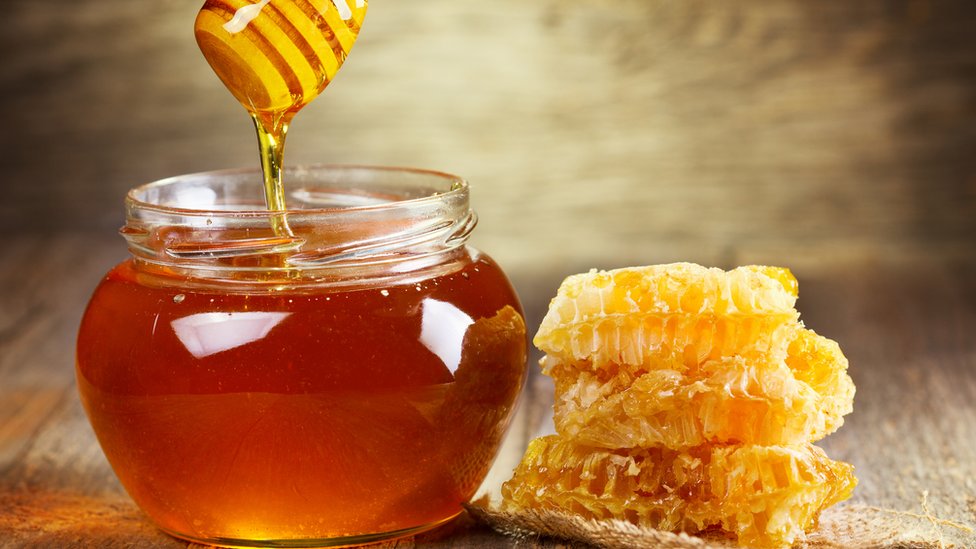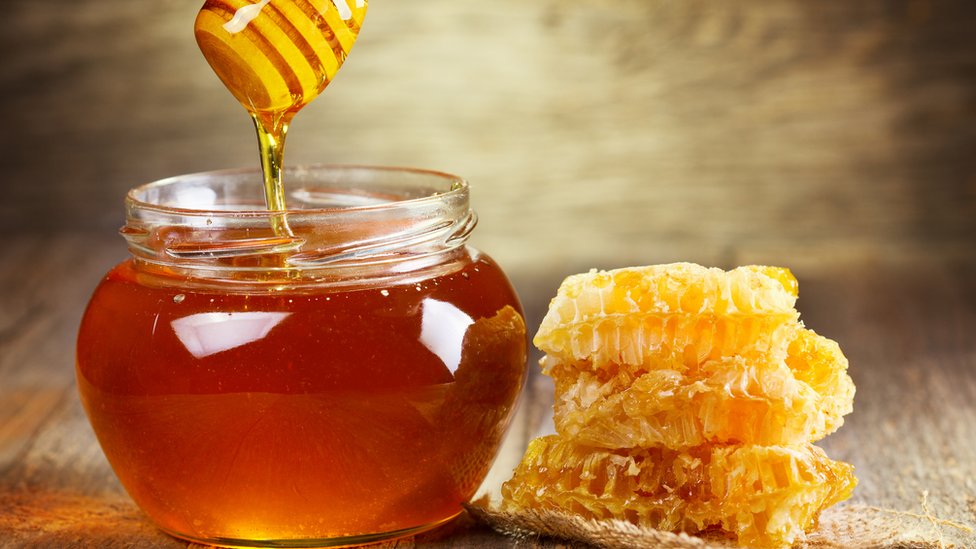
If you’ve ever wondered about the benefits of manuka honey and what it can do for you, then look no further. This article will provide a brief overview of the numerous ways that manuka honey can be used to improve your health and well-being. From its potent antibacterial properties to its potential in soothing digestive issues, manuka honey is a versatile and natural remedy that deserves a spot in your daily routine. Whether you’re looking for a way to boost your immune system or enhance your skincare routine, manuka honey has got you covered. Let’s explore the incredible benefits of this golden elixir and discover why it’s been cherished for centuries.
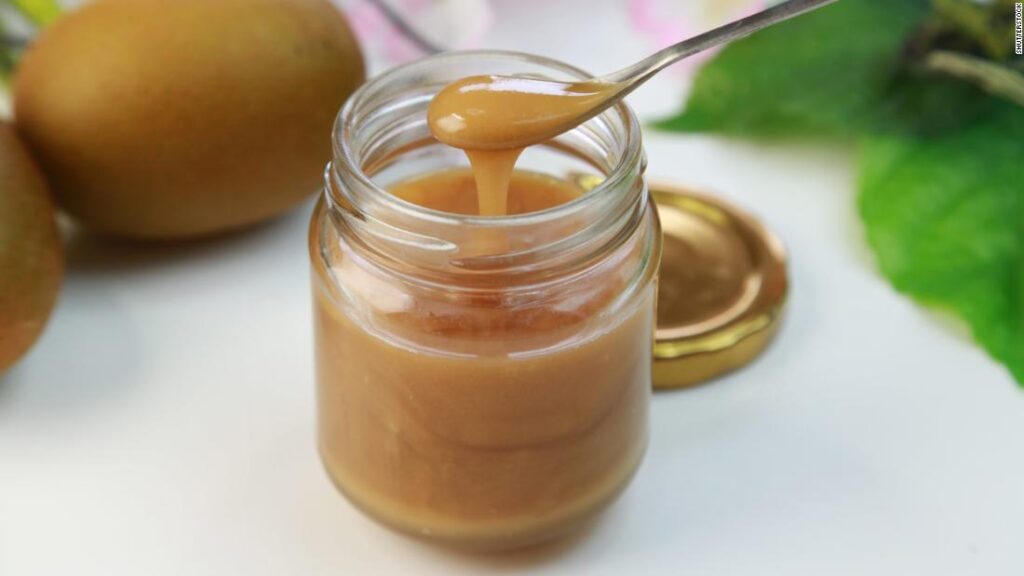
What is Manuka Honey?
Definition
Manuka honey is a unique type of honey that is produced by bees that feed on the nectar of the Manuka tree (Leptospermum scoparium), which is native to New Zealand. This honey is known for its rich, distinctive flavor and its plethora of health benefits. It is highly regarded for its antibacterial properties and is widely used in both traditional and modern medicine.
Origin and Production
Manuka honey is exclusively produced in New Zealand, where the Manuka tree thrives. The bees collect the nectar from the Manuka flowers and transform it into honey through a process of enzymatic activity. The nectar is then stored in the honeycomb and undergoes a natural enzymatic transformation called “ripening.” This unique ripening process gives manuka honey its distinct properties, making it stand out among other types of honey.
Unique Features
What sets manuka honey apart from other varieties is its high concentration of methylglyoxal (MGO), which is responsible for its unique antibacterial properties. Manuka honey contains significantly higher levels of MGO compared to other types of honey, giving it superior efficacy in promoting health and healing. The presence of MGO is measured through the Unique Manuka Factor (UMF), which identifies the level of antibacterial activity in the honey.
Medical Uses of Manuka Honey
Wound Healing
One of the most well-known uses of manuka honey is in wound healing. Its antibacterial properties, specifically its ability to fight against antibiotic-resistant strains of bacteria, make it an effective natural remedy for wound management. Due to its high viscosity, it creates a protective barrier over wounds, preventing infection and promoting quicker healing.
Antibacterial Properties
Manuka honey has been extensively studied for its powerful antibacterial properties. It has been found to be effective against a wide range of bacteria, including MRSA (methicillin-resistant Staphylococcus aureus) and H. pylori, the bacteria responsible for stomach ulcers. The presence of MGO in manuka honey gives it potent antibacterial activity, making it a valuable natural alternative to antibiotics.
Digestive Health
manuka honey is also known to promote digestive health. It soothes the lining of the digestive tract, helping to control issues like acid reflux, gastritis, and stomach ulcers. The antibacterial properties of manuka honey also aid in combating harmful bacteria in the gastrointestinal system and promoting a healthy balance of gut flora.
Sore Throat and Cough
For those suffering from a sore throat or persistent cough, manuka honey can offer relief. Its soothing properties help alleviate throat irritation, while its antibacterial action helps combat the underlying causes of the symptoms. Mixing a spoonful of manuka honey in warm water or herbal tea can provide soothing relief and support respiratory health.
Dental Health
Manuka honey contributes to improving oral health. Its antibacterial properties help kill harmful bacteria in the mouth, preventing tooth decay, gum disease, and bad breath. It has also been found to be effective in reducing plaque formation and promoting healthy gums. Incorporating manuka honey into your oral hygiene routine can have positive long-term effects on your dental health.
Beauty and Skincare Benefits of Manuka Honey
Moisturizing and Nourishing
When it comes to skincare, manuka honey is a powerhouse of nutrients and antioxidants. Its hydrating properties make it an excellent moisturizer, helping to keep the skin supple and glowing. The antioxidants present in manuka honey also protect the skin from free radicals, preventing premature aging and promoting a youthful complexion.
Anti-Aging Properties
Manuka honey’s antioxidant content makes it a natural anti-aging ingredient. It helps boost collagen production, which is essential for maintaining the skin’s elasticity and firmness. Regular use of manuka honey can help reduce the appearance of wrinkles, fine lines, and age spots, giving you a more youthful and radiant complexion.
Acne Treatment
Manuka honey’s antibacterial and anti-inflammatory properties make it a valuable ally in the fight against acne. It helps combat the bacteria that cause acne while soothing inflammation and reducing redness. Applying manuka honey directly to affected areas or using skincare products that contain manuka honey can help prevent breakouts and promote clearer skin.
Scalp and Hair Health
Manuka honey can also work wonders for your hair and scalp. Its moisturizing properties help nourish the scalp, combat dryness, and alleviate conditions like dandruff and itchiness. The antibacterial properties of manuka honey also help maintain a healthy scalp and promote hair growth. Regular use of manuka honey as a hair mask or in hair care products can result in shinier, healthier hair.
How to Use Manuka Honey
Internal Consumption
To benefit from the medicinal properties of manuka honey, it can be consumed internally. It can be taken by the spoonful, added to hot water or tea, or used as a natural sweetener in various recipes. When consuming manuka honey, it is essential to pay attention to its UMF rating and choose a reputable brand to ensure you are getting a genuine and high-quality product.
Topical Application
Manuka honey can also be applied topically to the skin or affected areas. For wound healing or skin conditions, applying a thin layer of manuka honey directly to the affected area and covering it with a bandage or dressing can promote healing and alleviate symptoms. For skincare and beauty purposes, incorporating manuka honey into homemade masks, scrubs, or moisturizers can enhance the effectiveness of your skincare routine.
Choosing the Right Manuka Honey
To ensure you are getting the authentic and highest quality manuka honey, it is important to look for the UMF rating on the product. The UMF rating indicates the level of antibacterial activity in the honey, with higher numbers representing a higher potency. Look for a reputable brand that provides transparency about their sourcing and production methods to guarantee you are purchasing a genuine product.
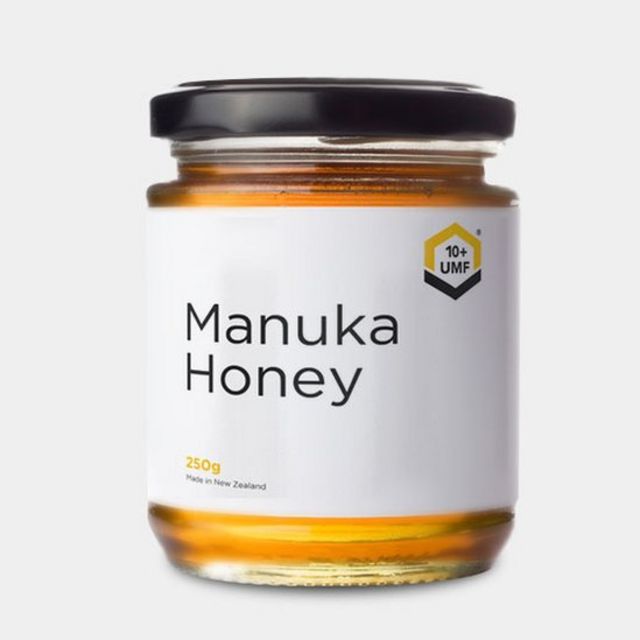
Research and Scientific Studies
Clinical Trials
Numerous clinical trials have been conducted to explore the health benefits of manuka honey. These studies have focused on a wide range of applications, including wound healing, gastrointestinal health, and oral health. The results have shown promising outcomes, demonstrating the efficacy of manuka honey in various medical and therapeutic settings.
Effectiveness and Safety
Manuka honey has proven to be effective in its intended uses, particularly in wound healing and combating bacteria. However, it is important to note that, like any natural remedy, individual results may vary. As for safety, manuka honey is generally considered safe for most individuals when used correctly. However, it is advisable to consult with a healthcare professional before using manuka honey for any specific medical conditions or concerns.
Comparisons with Other Honey Types
When comparing manuka honey with other honey types, it is evident that manuka honey stands out due to its unique antibacterial properties. While other types of honey offer mild antibacterial effects, manuka honey’s significantly higher levels of MGO give it a distinct advantage. This sets manuka honey apart and makes it a preferred choice for those seeking powerful antibacterial and therapeutic benefits.
Potential Side Effects and Precautions
Allergic Reactions
Although rare, some individuals may experience allergic reactions to honey, including manuka honey. Symptoms may include itching, swelling, or difficulty breathing. If you have a known allergy to bees or honey, it is advisable to exercise caution and consult with a healthcare professional before using manuka honey.
Diabetes and Blood Sugar Levels
Due to its natural sugar content, individuals with diabetes should monitor their intake of manuka honey. While manuka honey has a lower glycemic index compared to regular table sugar, it can still affect blood sugar levels. It is important to consult with a healthcare professional to determine the appropriate amount of manuka honey for individuals with diabetes.
Infants and Young Children
Children under the age of one should not consume honey, including manuka honey, due to the risk of infant botulism. The bacteria spores found in honey can be harmful to infants whose digestive systems are still developing. It is recommended to wait until the child is at least one year old before introducing honey into their diet.
Pregnancy and Breastfeeding
Manuka honey is generally considered safe for pregnant women and those who are breastfeeding when used in moderation. However, it is always advisable to consult with a healthcare professional before adding any new supplements or natural remedies to your routine during pregnancy or while breastfeeding.
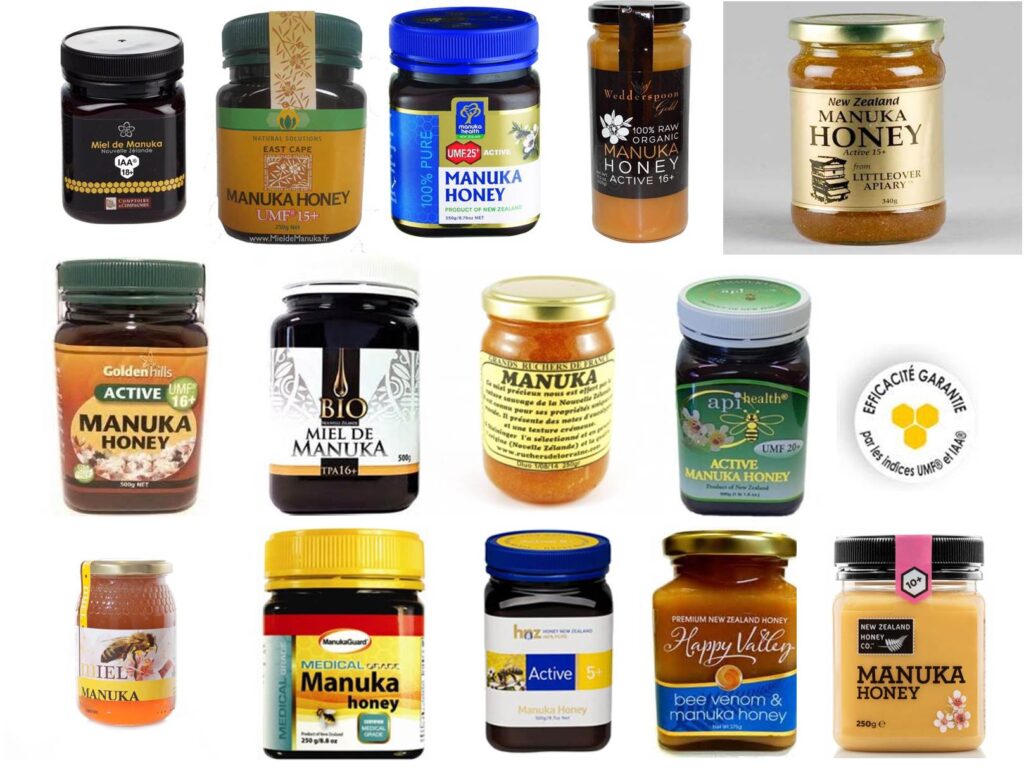
Choosing and Storing Manuka Honey
UMF (Unique Manuka Factor) Rating System
The UMF rating system is used to identify the level of antibacterial activity in manuka honey. Look for the UMF rating on the product packaging, as it ensures the authenticity and quality of the honey. A higher UMF rating indicates a higher concentration of beneficial compounds, making it more potent and effective.
Authenticity and Quality
To ensure you are purchasing authentic manuka honey, it is important to buy from reputable brands or trusted sources. Look for products that have been certified as genuine manuka honey and adhere to strict quality standards. Genuine manuka honey will have a UMF rating and clear labeling related to its origin and production.
Storage Tips
To maintain the quality and properties of manuka honey, it is important to store it correctly. Store manuka honey in a cool, dry place away from direct sunlight. Avoid exposure to heat, humidity, or extreme temperature changes, as these can affect the quality and consistency of the honey. When stored properly, manuka honey can have a long shelf life and retain its potency for an extended period.
Frequently Asked Questions (FAQs)
What is UMF rating?
UMF stands for Unique Manuka Factor and is a rating system used to measure the antibacterial activity of manuka honey. The UMF rating indicates the potency and effectiveness of the honey, with higher numbers representing a higher level of antibacterial activity. It is important to look for the UMF rating when purchasing manuka honey to ensure its authenticity and quality.
Can manuka honey cure diseases?
While manuka honey has numerous health benefits and therapeutic properties, it is important to note that it is not a cure-all for diseases. Manuka honey can be a valuable addition to a holistic approach to health and wellness, supporting the body’s natural healing processes and promoting overall well-being. It should not substitute proper medical treatment or advice from healthcare professionals.
Is manuka honey safe for diabetics?
Manuka honey, like any other honey, contains natural sugars and can affect blood sugar levels. Individuals with diabetes should monitor their intake of manuka honey and consult with a healthcare professional to determine an appropriate amount that fits into their overall meal plan. It is always important to prioritize blood sugar management and follow personalized medical advice.
How long does manuka honey last?
When stored properly, manuka honey has a long shelf life. The high sugar content and low water content create an inhospitable environment for bacteria to grow. Unopened manuka honey can last indefinitely, while opened jars should be consumed within 12-18 months. It is essential to store manuka honey in a cool, dry place and keep it tightly sealed to maintain its quality and effectiveness.
Can I use manuka honey on my face?
Yes, manuka honey can be used on the face as part of a skincare routine. Its moisturizing and nourishing properties make it an excellent natural ingredient for masks, cleansers, and moisturizers. However, it is important to patch test before applying it all over the face to ensure there are no allergic reactions. Additionally, consult with a dermatologist or skincare professional for personalized advice and recommendations.
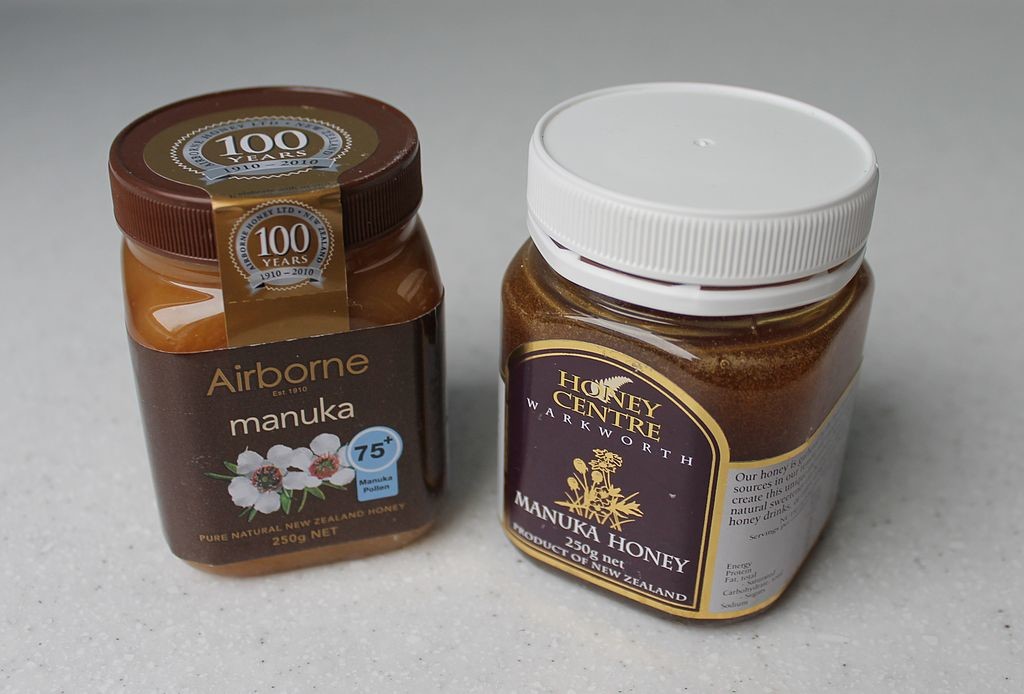
Testimonials and User Experiences
Success Stories
Many individuals have experienced positive outcomes through the use of manuka honey. From improved wound healing to relief from digestive issues, manuka honey has been praised for its effectiveness. Users have reported faster healing times, reduced inflammation, and overall improved well-being.
Customer Reviews
Customers who have incorporated manuka honey into their skincare routines have shared their positive experiences. They have noticed improvements in skin hydration, reduction in acne breakouts, and overall improvement in skin texture and appearance. Manuka honey has garnered a loyal following, with many users expressing their satisfaction with the results they have achieved.
Personal Experiences
Individuals with various health concerns have shared their personal experiences with manuka honey. Some have reported relief from chronic conditions such as acid reflux and gastritis, while others have praised its effectiveness in alleviating sore throat and cold symptoms. Manuka honey continues to garner attention for its potential health benefits, with individuals sharing their remarkable experiences and recommending it to others.
Conclusion
Summary of Benefits and Uses
Manuka honey has been revered for its many health benefits and therapeutic properties. Its unique antibacterial properties make it a valuable natural remedy for wound healing, digestive health, and respiratory issues. In skincare, manuka honey offers moisturizing, anti-aging, and acne-fighting properties, promoting healthy and radiant skin. Incorporating manuka honey into your routine, both internally and topically, can deliver a wide range of benefits.
Future Research and Potential Discoveries
While manuka honey has been extensively studied, ongoing research continues to uncover new potential uses and benefits. Researchers are exploring its effectiveness in areas such as cancer treatment, immune system support, and other chronic conditions. Further studies may shed light on additional therapeutic applications and expand our understanding of manuka honey’s capabilities.
Closing Remarks
Manuka honey has earned its place as a highly regarded natural remedy and skincare ingredient, thanks to its unique properties and numerous benefits. When choosing manuka honey, it is crucial to opt for reputable brands that adhere to quality standards. With proper usage and a keen eye on personal health considerations, manuka honey can be a valuable addition to your wellness and beauty routine. Enjoy the natural sweetness and embrace the potential health and skincare benefits that manuka honey has to offer.
